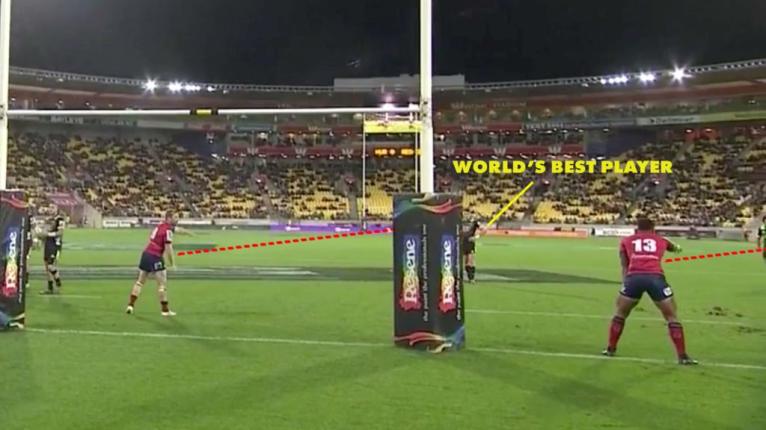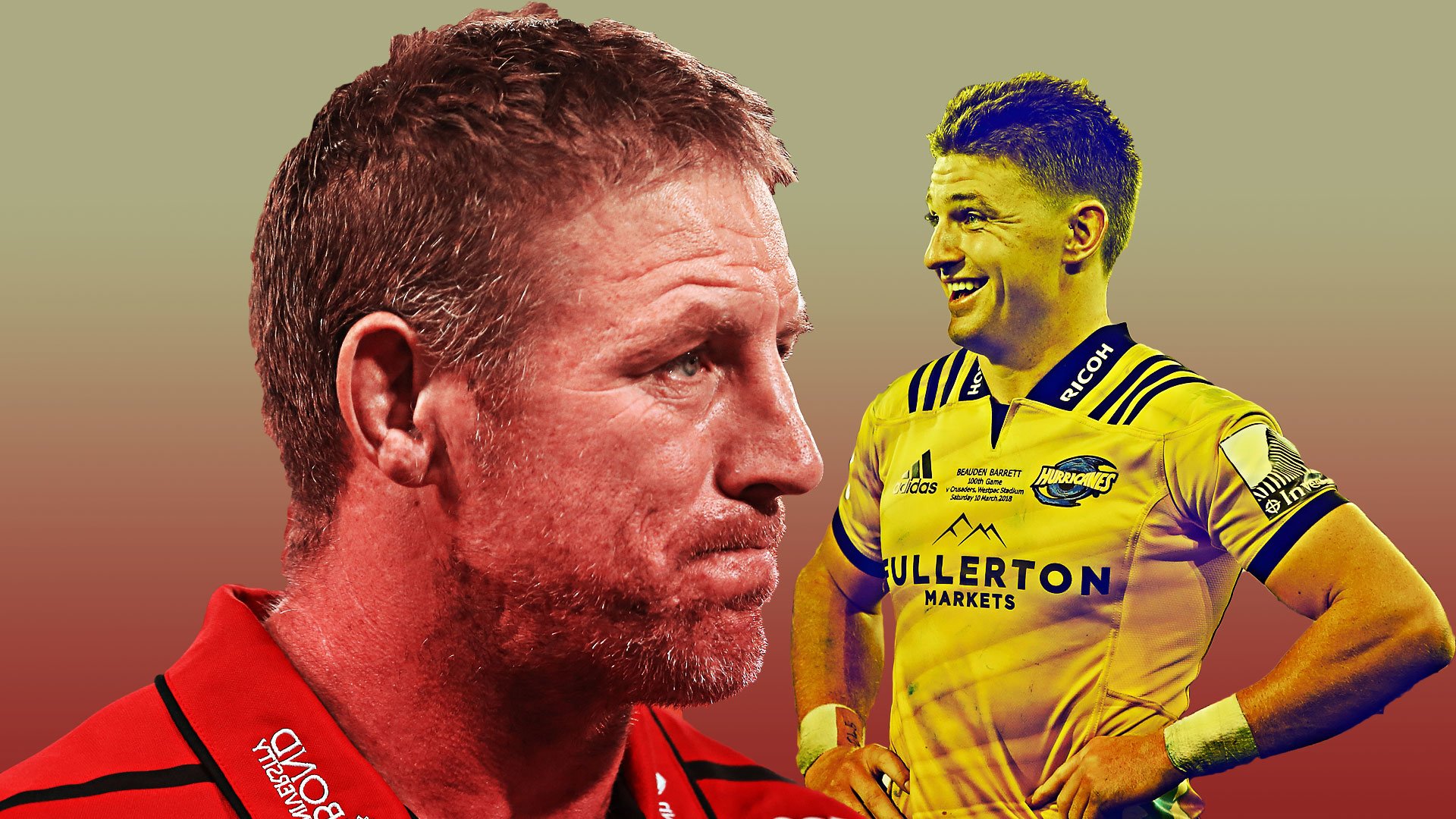The Queensland Reds put up a brave fight and almost came away with a win over the Hurricanes, going down 38-34.
They never gave up and managed to get back in the game every time that it looked like slipping away. At times they made some brilliant decisions, and at other times they made some mind-numbingly stupid ones. It’s the lack of fundamental rugby ‘smarts’ that continually cost the Reds, and we only have to look four minutes to find one that costs them 7 points.
Here, camped deep in their own half the Reds setup to exit with a clearing kick directly after winning a turnover.

The Reds forwards don’t seem to be aware of where their kicker is, setting up on the other side. Jono Lance calls for Duncan Paia’aua to take the kick as he can’t from behind the posts. The forwards don’t hear the call and the Reds give the Hurricanes an invitation to cause chaos. Paia’aua, with no protection, doesn’t think about giving himself more room to kick.

The ensuing charge down forces Jono Lance to clean up the loose ball. He is tackled in-goal and gives the Hurricanes a 5-metre scrum.
The Reds manage to hold up debutant Peter Umaga-Jensen over the line on the first scrum move, giving the Hurricanes another midfield scrum.
We covered this exact situation in depth in the pre-season here – how the Hurricanes expose sliding defences by getting Beauden Barrett matched up with a halfback one-on-one.

By stacking three defenders on the blind side to cover two backs, the Reds defensive setup guarantees that Beauden Barrett will get the ball. The Hurricanes have been given a 4-on-3 overlap to the open side with BEN LAM, the best finisher in Super Rugby, left open unmarked.

To cover the open side overlap, the Reds are going to try and use a sliding defence with the halfback Ben Lucas defending off base to take Barrett. However, the Reds could cover every player man-for-man as their fullback Hamish Stewart has to defend on the try line. They have no need to put an extra defender (Jono Lance) on the blind slide in this situation.
Why give the Hurricanes a guaranteed overlap on the open side to exploit? Playing man-on-man forces them to create an overlap first. At least make them work for it.

Lucas confirms with Kerevi one last time they are actually going to try and slide out to defend the overlap, giving Barrett an open look at the try line with no body-on-body defender.
The chances of covering Barrett less than ten metres out with this strategy must be extremely close to zero percent. TJ Perenara just needs to hold Lucas up an inch and Barrett will be able to score in his attempted sliding tackle. He doesn’t need to burn him completely, basically just get level with him on the outside and momentum will take him over. With Kerevi drifting, this hole should stay as wide as it looks above.
As Perenara feeds the scrum, he calls for “runners, runners, runners”, a play change on the fly that calls for the backs to just find a hole. Perenara will become the playmaker and Barrett and everyone else will run lines in gaps and he will pick one.

As the play unfolds Kerevi senses the danger posed by Barrett’s line and breaks protocol immediately, flying in to shut down Barrett while Lucas stays on his original assignment. TJ Perenara could potentially dummy and go himself or hit Umaga-Jensen long for a walk-in try. He probably takes the more difficult option now that Barrett has two closing in on him.
Barrett senses Kerevi in his peripheral vision and expertly adjusts his line, bouncing out at the same time Perenara releases his pass. Kerevi is caught out and ends up impeding Lucas slightly from making a genuine tackle attempt, a comical misjudgment.

Barrett is nearly held up over the line but manages to reach out and score.
The frustrating thing is it’s self-imposed sabotage– stacking the odds against yourself through ill-thought-out planning and preparation. In two poor plays, the Reds conceded seven points and ended up losing the game by four. There are plenty of instances that you can look back on during a game and fix purely through better strategic preparation.
It does make you question what actually happens when Australian teams review their performances on a Monday. If they can improve the small details, it won’t be 40 losses before their next win against a New Zealand side.

























